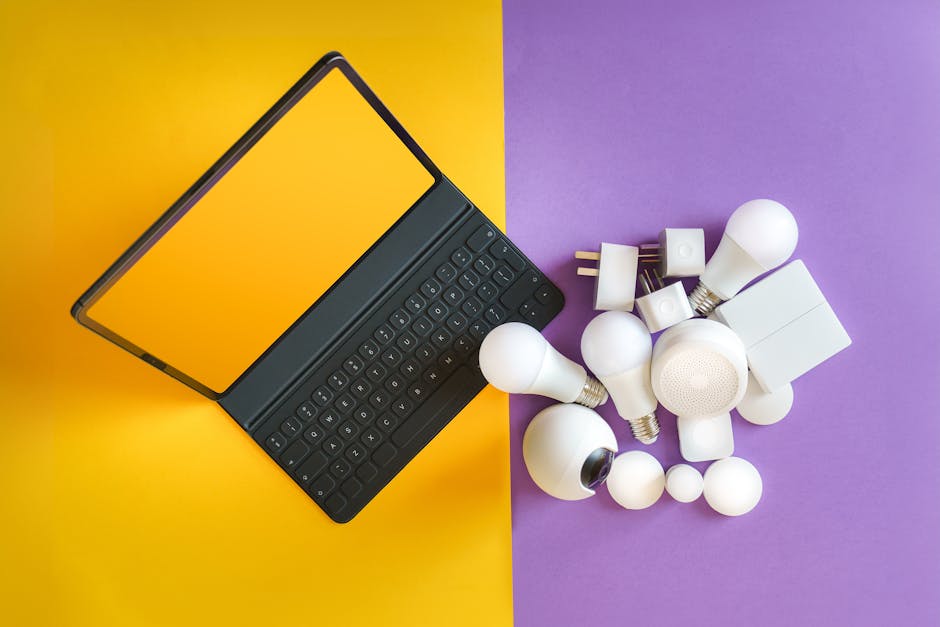2025’s Best Smart Home Appliances for Effortless Living

The concept of a smart home has been around for decades, but it is only in recent years that it has become a reality for many households. With the rapid advancement of technology, smart home appliances have become more affordable and accessible, making it easier for homeowners to upgrade their living spaces. By 2025, it is estimated that the global smart home market will reach a value of $174.24 billion, with a compound annual growth rate of 12.5%. This growth is driven by the increasing demand for convenience, energy efficiency, and security in homes.
In this article, we will explore the best smart home appliances that will make our lives easier and more efficient in 2025. From kitchen appliances to home security systems, these devices are designed to provide effortless living and enhance our overall quality of life.
The Rise of Smart Home Appliances
The rise of smart home appliances can be attributed to the development of the Internet of Things (IoT) technology. IoT refers to the connection of everyday objects to the internet, allowing them to send and receive data. This technology has enabled appliances to communicate with each other and with their users, making our homes more interconnected and intelligent.
Smart home appliances are designed to make our lives easier by automating tasks and providing us with more control over our homes. They can be controlled remotely through a smartphone or voice commands, making it possible to manage our homes even when we are away. These appliances also have sensors that can collect data and adjust their settings accordingly, making them more energy-efficient and cost-effective.
With the increasing popularity of smart home appliances, manufacturers are constantly innovating and improving their products to meet the demands of consumers. As a result, we can expect to see even more advanced and efficient smart home appliances in the market by 2025.
Smart Kitchen Appliances
The kitchen is often considered the heart of the home, and it is where we spend a significant amount of time cooking, eating, and socializing. With the introduction of smart kitchen appliances, our cooking experience has been transformed, making it more convenient and efficient.
Smart Refrigerators
Refrigerators are an essential appliance in any kitchen, and with the introduction of smart refrigerators, they have become even more indispensable. Smart refrigerators are equipped with sensors that can detect when food is running low and automatically add it to your grocery list. They also have cameras inside that allow you to see the contents of your fridge remotely, so you can check what you need to buy while at the grocery store.
One of the most exciting features of smart refrigerators is their ability to suggest recipes based on the ingredients you have inside. This feature not only saves time but also reduces food waste by encouraging users to use up the ingredients they have on hand. By 2025, we can expect to see even more advanced smart refrigerators that can track expiration dates and suggest meals based on dietary restrictions and preferences.
Smart Ovens
Gone are the days when we had to constantly check on our food while it was cooking in the oven. With smart ovens, we can now monitor and control our cooking remotely through a smartphone app. These ovens also have pre-programmed cooking settings for different types of food, making it easier for users to achieve the perfect dish every time.
In the future, we can expect to see smart ovens that can suggest cooking times and temperatures based on the weight and type of food being cooked. They may also have the ability to adjust the cooking settings automatically, ensuring that our food is cooked to perfection.
Smart Home Security Systems
Home security is a top priority for many homeowners, and with the advancements in smart home technology, we now have access to more sophisticated and efficient security systems. These systems not only protect our homes from intruders but also provide us with peace of mind when we are away.
Smart Locks
Smart locks are a convenient and secure way to control access to our homes. They can be controlled remotely through a smartphone app, allowing us to lock and unlock our doors from anywhere. Some smart locks also have the ability to grant temporary access to guests or service providers, making it easier to manage who enters our homes.
In the future, we can expect to see smart locks that use biometric technology, such as fingerprint or facial recognition, for even more secure access control. They may also have the ability to integrate with other smart home devices, such as security cameras and lights, to provide a comprehensive home security system.
Smart Security Cameras
Smart security cameras have become a popular choice for homeowners looking to enhance their home security. These cameras can be accessed remotely through a smartphone app, allowing us to monitor our homes in real-time. They also have features such as motion detection and night vision, making them more efficient in detecting and deterring potential intruders.
In the future, we can expect to see smart security cameras that use artificial intelligence (AI) to analyze footage and identify potential threats. They may also have the ability to integrate with other smart home devices, such as smart lights and alarms, to provide a more comprehensive security system.
Smart Energy Management Systems
With the increasing focus on sustainability and energy efficiency, smart energy management systems have become a popular choice for homeowners. These systems allow us to monitor and control our energy usage, making it easier to reduce our carbon footprint and save on energy costs.
Smart Thermostats
Smart thermostats are designed to learn our heating and cooling preferences and adjust the temperature accordingly. They can also be controlled remotely through a smartphone app, allowing us to adjust the temperature even when we are away from home. Some smart thermostats also have the ability to integrate with other smart home devices, such as smart lights and blinds, to optimize energy usage.
In the future, we can expect to see smart thermostats that use AI to analyze our energy usage patterns and make adjustments to save even more energy. They may also have the ability to integrate with renewable energy sources, such as solar panels, to further reduce our carbon footprint.
Smart Lighting Systems
Smart lighting systems allow us to control our lights remotely and set schedules for when they should turn on and off. They also have the ability to adjust the brightness and color of the lights, making it easier to create the perfect ambiance for any occasion.
In the future, we can expect to see smart lighting systems that use sensors to detect when a room is empty and automatically turn off the lights to save energy. They may also have the ability to integrate with other smart home devices, such as smart thermostats and security systems, to provide a more efficient and interconnected home.
Conclusion
The future of smart home appliances is exciting, and by 2025, we can expect








